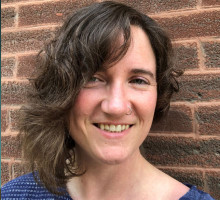
Reviews
[Bartoszyńska] uses an impressively wide-ranging analytic toolkit in her readings with recurring tropes such as metafictionality, irony, ekphrasis, temporality, the role of prefaces and footnotes....Not only does her book estrange the idea of the novel, but it also makes us think about the ruts we are stuck in when approaching literary works from different traditions.
For the researcher, the way this book continually presses against insufficient accounts of the novel is invigorating. So too, the close readings are clearly written by a scholar who loves the capacities of fiction in all their complexity. As a scholar and reader, for me this book's biggest payoff was its sustained discussion of worlding—specifically, via Eric Hayot, of the ways that occluded complexities of fiction bring new possibilities of thought into being.
The wider implication of the analysis in Estranging the Novel is that we need an account of novels which are 'anomalous or strange' that considers their strangeness on its own terms rather than how it accords with or departs from a single history of the nove...l. [Bartoszyńska] provides a compelling call for a new way of thinking about the novel's history and form, and the role of peripheral literatures within it.
Estranging the Novel is a highly original attempt to offer an alternative method for the study of the novel by juxtaposing texts derived from Polish and Irish novelistic traditions.
This book would be an important contribution to novel studies for the novels it studies alone....Reading this book not only helped me realize what I miss in knowing so little about Polish literature and not being able to read the Polish language, but it also helped me speculate about all the other things I did not know about novels and world literature.
Bartoszyńska's book is overall a lucid and captivating study...Estranging the Novel will reward readers who are searching for a thoughtful conversation with the most recent updates in theories of world literature.
...convincing and extremely interesting.
Bartoszyńska performs a great service by analyzing the works of writers who have been rarely, if ever, discussed together. This, alone, is enough to make this an engaging read.
...close reading linked to hermeneutics is Bartoszyńska's undeniable strength as a researcher.
Such an invigorating book! This deftly argued work exposes conventional accounts of the history of the novel as narrow and provincial. Bartoszyńska finds in Poland and Ireland sophisticated, self-reflexive fictions that ask—and invite us to ask—searching new questions about what the novel is and does.
At last! A comparative history of the novel, reading western with eastern Europe: Irish and Polish novels in illuminating dialogue over the picaresque and the fantastic, utopias, queer aestheticism, meta-modernism. These novels, Bartoszyńska demonstrates, create interlaced worlds.
Estranging the Novel is an original, lucid, and compelling contribution to the study of the novel as a capacious, formally various, and geographically wide genre. The book is beautifully conceived, clearly written, and thoroughly explicated.
Bartoszyńska's alternative concept of novelistic mimesis is rich and thought-provoking. This is important and exciting work, and our sense of world literature will be the better for it.
Book Details
Acknowledgments
Introduction: Unreal Histories
1. The Problem with Happily Ever After: Swift and Krasicki
2. The Terror of Worlds Unfolding: Potocki and Maturin
3. Queer Tales and Seductive Paintings
Acknowledgments
Introduction: Unreal Histories
1. The Problem with Happily Ever After: Swift and Krasicki
2. The Terror of Worlds Unfolding: Potocki and Maturin
3. Queer Tales and Seductive Paintings: Żmichowska and Wilde
4. Impossibly Free: Gombrowicz and Beckett
Conclusion: Toward a "Weak" Theory of the Novel
Notes






